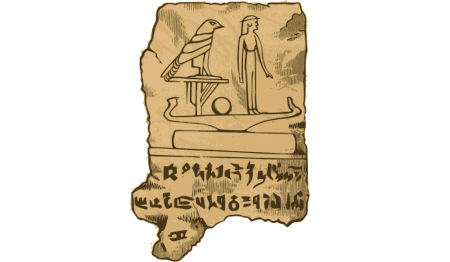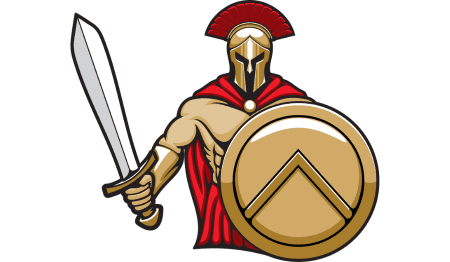
Romulus’s Bright Idea
Ready to travel again back on time and put on the sandals of Roman rulers? Have you ever asked yourself why March is called March? Is it related to Mars or do they just happen to look alike? You know who is Martius? Why Martians come from Mars? What happens in Mars, stays in March? You don’t know? Ok, we’ll tell you the truth next.
Back in ancient Rome, when togas were all the rage and Julius Caesar wasn’t just a salad, there was this legendary dude named Romulus—yeah, the founder of Rome and kidnapper of the Sabine women. He had some pretty big ideas, including how to organize the Roman calendar—the Romance calendar still has an awkward schedule though.

March: The Perfect Starter
Romulus, being the practical guy that he was, figured, “You know what? Let’s start the year when things start getting lively again—when winter’s finally taking a hike and spring is peeking around the corner.” And just like that, March became the head honcho of the Roman calendar.
This early Roman calendar is often referred to as the “Romulan calendar”. It consisted of ten months, totaling 304 days. The other months in the Romulan calendar were:
| Month | Day | Month | Day |
|---|---|---|---|
| Martius | 31 days | Sextilis | 30 days |
| Aprilis | 30 days | September | 30 days |
| Maius | 31 days | October | 31 days |
| Junius | 30 days | November | 30 days |
| Quintilis | 31 days | December | 30 days |
Named After Mars, the War God
March was the time when farmers were itching to till their fields, flowers were starting to bloom, and, oh yeah, it was prime time for kicking off military campaigns. So, Romulus was like, “March it is, folks!” It was named after Mars, the god of war, because, you know, Romans were all about that conquering business.

Julius Caesar’s Calendar Remix
Fast forward a bit, and Julius Caesar, another big shot in Roman history, decides it’s time to shake things up.
After Numa Pompilius introduced January and February to the calendar party, Caesar decided to bump March down to third place. But you know what they say, you can take March out of the top spot, but you can’t take the warrior spirit out of March.

March: The OG Kickoff Month
Even though March got demoted a bit, its legacy as the OG kickoff month stuck around. It’s still a time of renewal, growth, and maybe a little bit of war… metaphorically speaking, of course.
So, next time you’re flipping through your calendar, give March a little nod of respect for being the trailblazer it is. Speaking of flipping, have you asked yourself if March existed before Romans? Of course, no huh! We neither!

Pre-Romulus Timekeeping
Before Romulus and his calendar shenanigans, folks all around the ancient world were keeping track of time in their own funky ways. Egyptians, Greeks, Babylonians—they all had their own gig when it came to organizing their schedules.
In America, you know Incas, Aztecs and Mayans had their own way of timekeeping—the latter used both a lunar and solar calendar. Asia and Africa were doing their own thing when coming to keeping track of time—if tracking time is even possible, of course.

Lunar Calendar Craze
Now, imagine this: lunar calendars were all the rage. These calendars were like, “Yo, let’s base our months on the phases of the moon!” So, you’d have around 12 months, each one tied roughly to a full cycle of the moon. But here’s the kicker: since lunar months are a tad shorter than a full solar year, these calendars had to get creative to keep up with the seasons.

March, Before March
And as for March? Well, it wasn’t always the March we know and love today. Different cultures had their own takes on months, so while some might have had a month kinda like March, it might not have been named the same or had the same vibe.

Mesopotamian Calendar Quirks
Take Mesopotamia, for example. The Babylonians had their own lunar calendar with 12 months, but it wasn’t a carbon copy of the Roman deal.

Egyptian Calendar Secrets
And don’t even get me started on the ancient Egyptians—they had their own calendar game going on too, totally different from what the Romans were cooking up.

March and Beyond
So, long story short, yeah, other ancient peeps were counting months, but it was like a whole mixed bag of flavors. The concept of “March” as we know it today—springtime vibes and all—was pretty much a Roman invention, courtesy of Romulus and his crew.

Mars Meant Wars!
That’s right! To the Romans, March (Martius) was more than just a month—it was a tribute to Mars, the Roman god of war. According to Roman mythology, Mars was believed to be the father of Romulus and Remus, the legendary founders of Rome. As a result, Mars held immense significance in Roman culture, and March was dedicated to honoring him.

Mars: The God & the Planet!
Now, here’s where it gets interesting—the name “Martius” for the month of March and “Mars” as the name of the Roman god of war (and the planet) share the same root word, “Mārs.”
This connection underscores the deep association between the month of March and the war deity in Roman belief. The exact origin of the name “Mars” is a bit murky, but it’s thought to have stemmed from an ancient Italic deity associated with agriculture and fertility.

March Was Indeed for Wars!
Over time, Mars evolved into more than just a deity associated with agriculture. He became synonymous with war, embodying qualities like strength, courage, and military prowess. March was chosen to honor Mars because it signaled the renewal of life and the resumption of military activities after the winter lull.
As farmers prepared their fields for planting, so too did warriors gear up for battle. Hence, the name “Martius” for March was fitting—a tribute to the war god and a symbol of vitality and renewal.

“Martius” for “Mars”
So, essentially, the names “Martius” for March and “Mars” for the god of war are intricately linked, reflecting the Roman reverence for power, conquest, and the cyclical nature of life. It’s all about honoring the legacy of Mars and the warrior spirit that defined Roman culture.
Romans weren’t just about conquering nations; they were also big on conquering calendars! Got it? It was all about power. Time is money & money is time and makes things happen. Business as usual: Same shit, different time! Let’s understand now why New Year was not in January.

New Year’s in March
Once upon a time, as you may know, they use to celebrate New Year’s in March. Yeah, read our article to understand how Romans celebrated New Year’s. You may get to find out if Romans were really romantic or not.
Check out our Leap Day section to discover the real reason behind Romans adding an extra day to February every four years. Let’s dive deep into the rabbit hole to understand the universe mystery. Speaking of mysteries, Love is a mystery that Spanish-speakers solved long time ago. Check out our blog for some Spanish Romance—not Romans, of course.

Sexy Spanish Romance
Want to add some romance to your Spanish vocabulary? Dive into our blog sections: ‘Things Spanish People Say in Bed’ and “El Sexi Chupacabras”. There, you’ll uncover sensual phrases, including how to express ‘I love you’ in Spanish and much more.

Looking for a Laugh & not Love?
Looking for a language-related laugh? While phrases like ‘¡Feliz Año Nuevo!’ or ‘¡Me Gusta la Chucha de tu Madre!’ might raise a smile, it’s important to approach language learning with respect and cultural sensitivity. Embrace the diversity of languages and immerse yourself in the lively Spanish-speaking world.

Interested in Legends and Folklore?
Explore our ‘Legends & Folktales’ section, where you’ll find stories about mythical beings like la Santa Muerte, la Llorona, la Ciguapa, El Sexi Chupacabras, and others from Hispanic tradition.
Curious about the Easter season? Check out our ‘Pascua’ section for articles related to the eggy season. And be sure to read our ‘About’ section to discover our passion for teaching and don’t forget the complimentary lessons at Kasa de Franko.

Ready for a Free Ticket?
Hey there! Ready to dive into Spanish? Join us at Kasa De Franko, your one-stop language hub in the San Jose & San Francisco Bay Area! Whether you’re into one-on-one sessions or group fun, snag a spot for a free Spanish class today. Hit that red button to kick things off, and remember…

